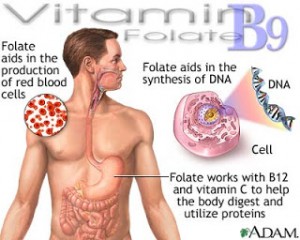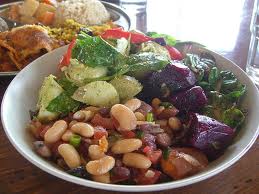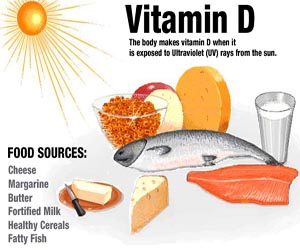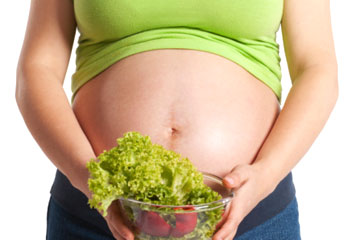Ten years ago folate became the hero among the food additives. The decision was made to make it mandatory to enrich flour, pasta and other foods with folate with the goal to reduce the incidence of neural tube defects in newborns. Folate also was a valuable as a prenatal supplement. A study which involved seven provinces of Canada which was published in July 2007 in the New England Journal of Medicine showed that the supplementation has been a success in this respect, as neural tube defects had been reduced by 46 %. Folate also seems to have been of benefit in the reduction of strokes, as it has the propensity to lower blood homocysteine concentrations. In the meantime not all seems to be well, as there is a darker side to folate. Already decades ago studies warned that folic acid given to leukemia patients hastened the progression of the disease. In a publication of the American Medical Association results from a polyp prevention study were written up. The vitamin was associated with a higher rate of advanced adenomas (tumors of the colon). These findings cannot be easily ignored. On the one hand about 1,500 children are saved from a devastating birth defect; on the other hand the number of colon cancer cases increases by 15,000 per year. At this point there is no suggestion in Canada or in the US to abandon the food fortification with folate. In the U.K. the implementation of folate fortification has been delayed till more research is available.
As food supplementation with folate may be higher than necessary, it seems wise to exercise a measure of caution. Women with a family history of colonic polyps should be advised to take the minimum folic acid dose in their prenatal supplementation. As far as male patients are concerned doctors should excise caution before they advise patients that are over 40 about the perceived benefits of vitamin supplementation. Any of the perceived benefits ought to clearly outweigh the potential risky side effects, which is not only true for any medication but also for any vitamin supplement.
Reference: The Medical Post, July 8, 2008, page 1 and 23
Last edited December 4, 2012















